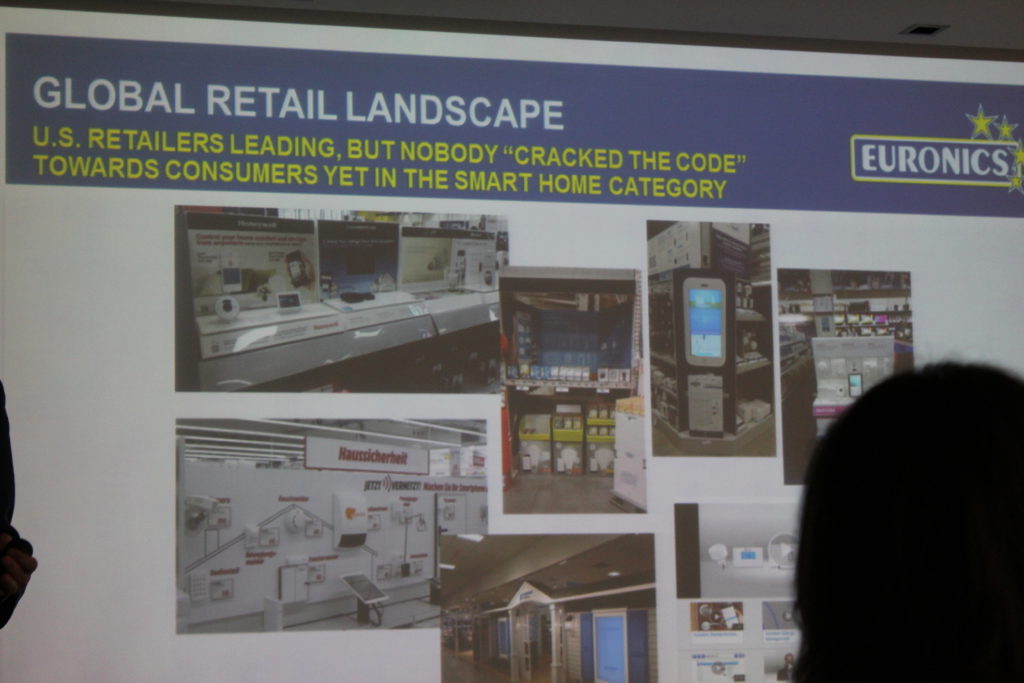Operators have been talking about it for years but consumers are still confused: smart home is a very important driver for the market growth but it needs to be redefined and correctly promoted
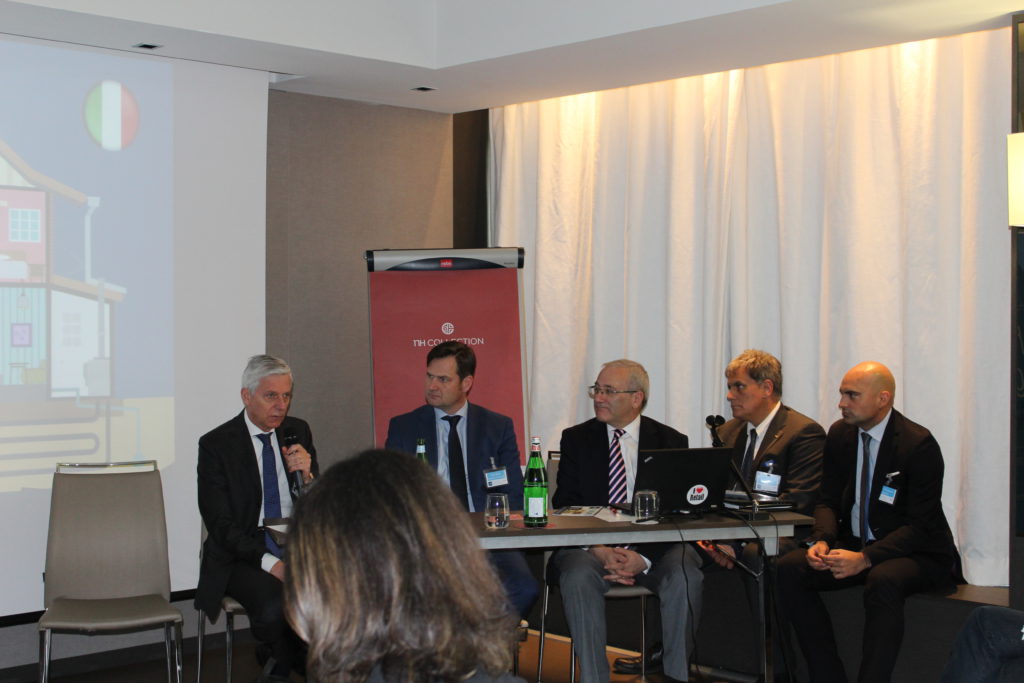
by Tiziana Corti
During a conference recently held in Milan, at the NH President Hotel, a recent research conducted by Context in Italy, Germany, Spain, France and UK was the hint for facing in deep and in a synergic way the potential of smart home in the market
Among many opinions and analysis, the first emerged was the need to redefine what is smart home concretely and, more importantly, what real benefits it can bring to the user’s daily life.
Much confusion is, in fact, visible among consumers who some years ago heard speaking about domotics and home automation without ever having actually seen what it is in store. Later, with the spread of the web, the experts have coined new expressions, like Internet of Thing (IoT) and connected devices.
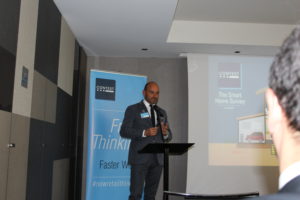 «We have to realign ourselves – said Davide Rossi, vice president of Ediel holding and general manager of Aires (Italian Association of home appliances retailers) – trying to understand what consumers know about the smart home. Often when we say ‘home automation’, people think of something they heard so much about but they have never seen in the end. Today, perhaps the right time has come to relaunch it in the proper way.»
«We have to realign ourselves – said Davide Rossi, vice president of Ediel holding and general manager of Aires (Italian Association of home appliances retailers) – trying to understand what consumers know about the smart home. Often when we say ‘home automation’, people think of something they heard so much about but they have never seen in the end. Today, perhaps the right time has come to relaunch it in the proper way.»
A round table discussion was attended by John Olsen, managing director of Euronics International, Antonio Guerrini, general manager of Ceced Italia, Alessandro Butali, president of Aires and managing director of Butali-Euronics, Marco Hannappel, head of audio-video division of Samsung Italia and vice president consumer market of Anitec.
Italians are confused but interested
According to the results of the Context survey presented at the Milan conference by the company’s global managing director, Adam Simon, Italian consumers are still reluctant to purchase equipment to make their homes ‘smart and connected’.
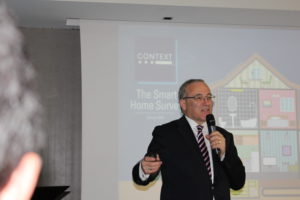
A share of 85.8% of the involved panel expressly states that it has no intention of buying, at least during 2016, a product for the smart home, a percentage that is close to that of Spain (80.2%). Germany and France, however, with 69.9% and 75.6%, have the small percentage of consumers unwilling to buy even one connected device in the coming months, while the UK is positioned midway (77.8 %). 12.2% of Italians affirms, on the contrary, the intention to buy one smart product for the home, compared to 24.8% in Germany and around 20% of the respondents both in France and in UK.
So, purchase intentions in the Italian market are still very limited: those who plan to have a smart home within a year are in this nation 5.4% of the people interviewed, compared to 8.7% of Spain, 9.8% of United Kingdom, 10.8% of France and 22.8% of Germany, this one confirming to be the most open market to the potential of the connected home.
The apparent skepticism that is still around the smart home, however, is mainly due to lack of knowledge of its possible applications in daily life. 56% of the panel says, in fact, it does not know enough about the subject.
The areas in which consumers would like to have more information are primarily relate to security, indicated by 43% of respondents. Second, 41.7% of the end users would like to know more concretely how it is possible to save money with the use of connected products. 38.2% of the panel, instead, wants to know if indeed these devices will be able to simplify and improve life.
The key role of the store 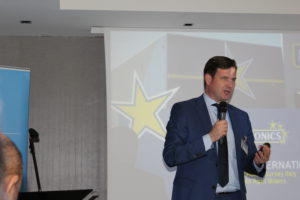
To present the smart home to the public is not easy, but many commercial operators try it. It seems, in fact, that retailers of household appliances are by no means the only potential competitors in this new market, that is interesting for players very different among them.
As shown by a survey of the Milan Polytechnic University, technicians, installers, architects and even insurance companies are often those who propose intelligent solutions for the home.
Then there is, as usual, a good amount of information and proposals on the Internet, but only 21% of respondents have heard of smart home in an home appliances specialist store, although this channel is considered by the majority as the right one to deal with connected household appliances.
Just for this reason, distribution is activating, as illustrated by John Olsen, managing director of Euronics International, who presented a number of projects designed to set up shops in a totally innovative way, reproducing a sort of home inside the store.
«Smart home diffusion – commented Olsen – will not be a sprint but a marathon, which will require time and team work.»
The matter is, actually, to physically recreate the eco-system as a whole so that users can see it in operation.
Opinion shared by Marco Hannappel, head of audio-video division of Samsung Italia and vice-president consumer market of Anitec, who claims that in Italy the smart home market has yet to stabilize in several respects. «Like all markets that start and grow so quickly – said Hannappel – we must take a path that goes to constitute a platform on which to build the market itself. To do this the industry needs to provide easy to use products, almost self-installing, Retail must develop a ‘category’ path and consumer must understand concretely how many and which products we are speaking about and how they can be linked together. A so unstable phase creates great uncertainty in the end customer who wonders if he does the good thing buying today or whether it is better to wait for the arrival of further technological implementations.»
How can we make the smart home enter in the shop storytelling?
So, what are the best ways to provide consumer with all the information he needs about the smart home?
«All of our channels – explains Alessandro Butali, president of Aires – have already been moving for some time to create the most appropriate conditions to promote in the best way this industry that is growing rapidly. Home monitoring and energy saving are the current most interesting areas in the consumers point of view, who want to check their homes and monitor consumptions also from outside. After the period of crisis we have gone through, of course we look favorably the technological innovations that can stimulate the market. But obviously, to launch them, we also need adequate resources. As the products are taking hold, however, also their spaces in the shop are implemented accordingly. We must invest in the training of the category manager but also economic returns are necessary. I agree, however, that the success of connected devices depends largely on their level of self-installation, a very important requirement in order that consumers appreciate them.»
Inside stores smart devices are increasingly presented in special displays, next to the shelf, that explained the functions and methods of use in detail.
| EDIEL, NEUTRAL PLATFORM FOR SMART HOME Ediel is a meeting place between industry and distribution in the household appliance sector. It was born from the union of three Associations - Aires, Anitec and Confindustria Ceced - initially to provide support in the adoption of a shared and standardized platform for the management of electronic documents, to which then the collaborative logistics and electronic catalog were added. It now offers itself as a neutral platform to share a new approach to bring the smart home on the Italian market. |
| SMART KITCHEN, ANOTHER OPPORTUNITY As seen in the last edition of EuroCucina, many smart solutions find interesting uses in the kitchen, an area watched by the industry with great interest. However, there are still too many problems related to the standards and protocols, another thorny issue to be solved. «The industry - explains Antonio Guerrini, general manager of Confindustria Ceced, still presents many different platforms and each producer faces the market with its own hub. This stage must be overcome, as each consumer wants to work in a synergistic environment. We must therefore put all hubs in communication with one another.» |

